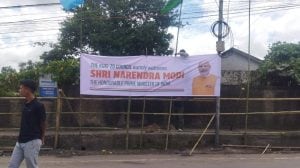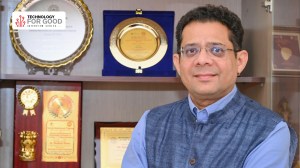Job in politics? Indian youths says ‘yes’
Age-old belief that youths are averse to taking up politics as a career,has been broken.
Contrary to the popular belief that Indian youths abhor politics,a new study by a social research organisation has suggested their interest in politics has consistently risen and a significant number of young men and women are willing to enter the field if given a chance.
What comes as a more interesting observation is that youth of the middle class,generally believed to be cynical to politics,are more in favour of making a career in politics than their counterparts in other economic stratas.
The report prepared by the researchers and scholars of the Centre of Studies for Developing Society (CSDS),in collaboration with the German institute Konrad Adenauer Stiftung (KAS),lays out a series of interesting outcomes on how Indian youths’ engagement with politics was emerging.
The study based on a survey of 2,565 respondents and other mechanisms points to a rising interest of youths for jobs in politics as well as their awareness of issues,and concludes that today’s youths are taking more interest in politics than those of mid-90s.
The study titled ‘Indian Youth and Politics: An Emerging Engagement’ that divided respondents into youth and older ones to analyse the difference in opinions found that over 60 percent of the Indian youths were interested in politics as compared to nearly 50 per cent of the older respondents.
“Not only are the youths in same time and same social space more interested in politics than the rest,over time too youths’ interest in politics seems to be on a consistent rise,” says the study.
While in 1996,37 per cent of youth were interested in politics,this number has been consistently rising ever since and as many as 52 per cent of those surveyed between the age group of 18 and 33 this time said they had some interest in politics. In another interesting pointer,the report says 34 per cent or over one-third of the youths surveyed were open to the idea of making politics their career if given a chance,while 54 per cent said they were not interested and 12 percent had no opinion.
But,among the 66 per cent of those who said they would not like to enter politics,a small but significant number were interested in the field but were discouraged as they had no connections in politics.
This is an important indicator to the fact that many earnest youngsters who do not come from a political family are finding it difficult to make a space for themselves,even if they wanted to become agents of change.
The rise in interest in politics over the decade can partially be attributed to the increasing exposure to media and the consequent rise in awareness.
The study found more more politically-aware youths were more inclined to join politics as exposure to the media leads to greater interest in politics.
While urban youth evinced greater interest in politics and were more willing to make it their career,their rural counterparts played more active roles in electoral activities.
“The big outcome of the study is that there appears to be emerging engagement with youth and there is a broad unanimity among youth on issues like supporting youth leadership and on the need for electoral reforms,but there was still a lot of heterogeneity among the category itself,” said Sanjay Kumar,principal investigator of the study at CSDS.
Considerable support was also found for young blood in politics among all sections of the voters surveyed,but at the same time the respondents said a candidate’s work was the most important determinant while voting.
63 percent of the youth ‘agreed’ when asked if young leaders should be given the charge of governing the country for better development,and support for young leaders was more among youth as compared to older respondents.
On the pertinent question of dynasty in politics,53 per cent of the youth surveyed said politicians’ children becoming politicians is “wrong”,with college-educated youths opposing this in greater strength than those with lower education.
However,when given a choice between a 50-year-old senior candidate who is also a sitting MP and a 28-year-old young candidate who is also a son of an ex-MP,most of the respondents of all social backgrounds said they would vote for the younger candidate.
On another burning question of electoral reforms,the survey found substantial support for ‘right to recall’,and said support for this provision had increased over the last two years.
While 62 percent of youths had supported ‘right to recall’ in a similar survey in 2009,the support increased to 69 percent this time.
Kumar said the youths were not found to have any particular ideological leaning and their gender,their exposure to media and their locality — rural or urban,as well as their educational levels made a difference to their opinions.
The study found that while electoral participation of youth had increased,it continued to be heterogeneous on lines of rural and urban youth and men and women.
Also noticed were the fact that the participation of youths in electoral activities has increased over the years,so is the participation in protests and demonstrations.
But on the flip side,the interest and participation of young women did not show much of a rise,Kumar said.
Photos



- 01
- 02
- 03
- 04
- 05




























